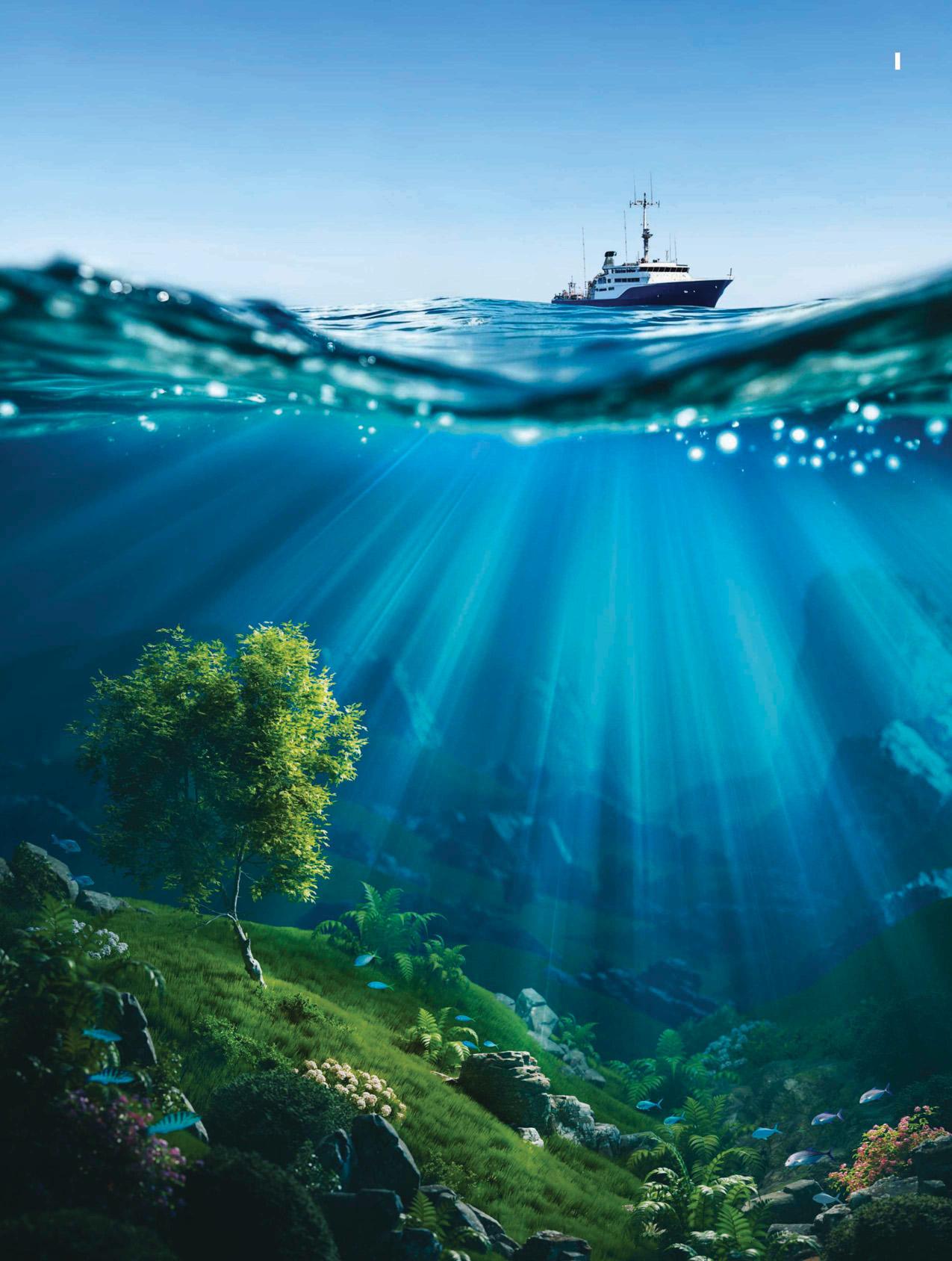Prøve GULL - Gratis
ECHOES OF ATLANTIS
BBC Science Focus
|March 2025
OVER HALF A MILLION PEOPLE MAY HAVE LIVED IN THE LOST LANDSCAPES NORTH OF AUSTRALIA... BEFORE THEY WERE CONSUMED BY THE OCEAN

In the works of Plato, a Greek philosopher who lived around 2,400 years ago, the island of Atlantis was said to have been drowned in the Atlantic Ocean after the hubris of its people angered the Gods. Although Atlantis was fictional, the idea that entire civilisations can disappear beneath the waves has intrigued us for millennia. Now, innovative technologies are revealing real sites around the world that our ancestors were forced to abandon before they were swallowed by the oceans.
One such 'Atlantis' lies to the north of Australia. At the height of the last Ice Age, around 21,000 years ago, the continent of Australia was around 20-per-cent larger than it is today. With more water locked up in ice sheets and glaciers, sea levels were around 120m (394ft) lower. This exposed an additional 2,000,000km² (around 772,000 sq miles) of land that connected Australia to New Guinea in the north and Tasmania in the south, creating a supercontinent known as Sahul.
Sahul's Northwest Shelf was a vast landmass that covered 400,000km² (154,000 sq miles) – just over 1.5 times the size of the UK – and joined onto the modern-day Kimberley region in northern Western Australia, and the Arnhem Land region in Australia's Northern Territory. Many archaeologists have argued that these ancient landscapes were unproductive environments and weren't used much by the early Aboriginal people. But new research is challenging this long-held assumption.
The now-submerged region may also hold the secrets to one of the biggest puzzles in anthropology. Lying next to some of the oldest known archaeological sites in Australia, Sahul's Northwest Shelf has long been recognised as a likely point of entry for the first people who made their way to the continent, some 65,000 years ago.
Now, the race is on to uncover the hidden treasures of this Atlantis-like land, before they're destroyed forever.
REVEALING LOST LANDSCAPES
Denne historien er fra March 2025-utgaven av BBC Science Focus.
Abonner på Magzter GOLD for å få tilgang til tusenvis av kuraterte premiumhistorier og over 9000 magasiner og aviser.
Allerede abonnent? Logg på
FLERE HISTORIER FRA BBC Science Focus

BBC Science Focus
World's biggest cobweb is home to 100,000 spiders
Spiders don't normally create such large colonies, so there's no need to worry about finding one in your basement
1 min
February 2026

BBC Science Focus
A dementia vaccine could be gamechanging – and available already
Getting vaccinated against shingles could protect you from getting dementia, or slow the progression of the disease
1 mins
February 2026

BBC Science Focus
DATA IN SPACE
An unusual spacecraft reached orbit in November 2025, one that might herald the dawn of a new era.
7 mins
February 2026

BBC Science Focus
Climate change is already shrinking your salary
No matter where you live, a new study has found warmer temperatures are picking your pocket
4 mins
February 2026

BBC Science Focus
A MENTAL HEALTH GLOW-UP
Forget fine lines. Could Botox give you an unexpected mental health tweakment?
3 mins
February 2026
BBC Science Focus
Most people with high cholesterol gene don't know they have it
Standard testing struggles to detect the condition
1 mins
February 2026

BBC Science Focus
HOW CAN I BOOST MY IQ?
If you're serious about getting smarter, it's time to ditch the brain-training apps
4 mins
February 2026

BBC Science Focus
Humans are absolutely terrible at reading dogs' emotions
Think you can tell how our furry friends are feeling? Think again
1 mins
February 2026

BBC Science Focus
HOW TO TEACH AI RIGHT FROM WRONG
If we want to get good responses from AI, we may need to see what it does when we ask it to be evil
3 mins
February 2026

BBC Science Focus
What Australia's social media ban could really mean for under-16s
Many people think social media is bad for our kids. Australia is trying to prove it
5 mins
February 2026
Listen
Translate
Change font size

